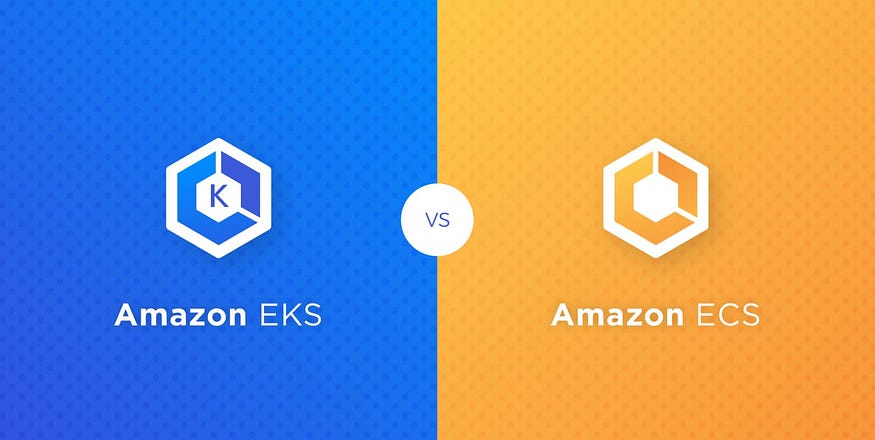ECS vs EKS — Which one to choose?

ECS (Elastic Container Service) and EKS (Elastic Kubernetes Service) are both managed services for running containerized applications on AWS. Here are some key points to consider when deciding between ECS and EKS:
Performance
Both ECS and EKS offer high performance and scalability for running containerized applications. However, EKS is based on Kubernetes, which is a more powerful and feature-rich container orchestration platform. This means that EKS may offer more flexibility and granular control over the management of your containers, but it also requires a deeper understanding of Kubernetes to fully utilize its capabilities. ECS, on the other hand, is easier to use and requires less management overhead, but it may not offer as much flexibility as EKS.
Cost
In terms of cost, ECS and EKS are generally similar. Both services charge based on the number of instances and the amount of resources used. However, EKS may have slightly higher costs due to the additional management overhead of running a Kubernetes cluster.
Use cases
ECS is a good choice for simple, stable workloads that do not require the advanced features of Kubernetes. It is also a good choice for organizations that are already familiar with AWS and do not want to learn the complexities of Kubernetes.
EKS is a good choice for organizations that need the advanced features and flexibility of Kubernetes, or for applications that are expected to scale rapidly. It is also a good choice for organizations that are already using Kubernetes in their on-premises environments and want to use a consistent orchestration platform in the cloud.
Choosing the right service
In general, ECS is the simpler and easier-to-use option, while EKS offers more advanced features and flexibility. The best choice for your organization will depend on your specific requirements and expertise. Here are some questions to consider when deciding between ECS and EKS:
- Does your application require the advanced features and flexibility of Kubernetes?
- Are you familiar with Kubernetes and willing to invest the time and resources to learn and manage a Kubernetes cluster?
- Do you have a stable, predictable workload, or do you expect your application to scale rapidly?
- Are you already using Kubernetes in your on-premises environment and want to use a consistent orchestration platform in the cloud?
- Do you have existing expertise and infrastructure on AWS, or are you starting from scratch?
By answering these questions, you should be able to determine which service is the best fit for your organization’s needs.



